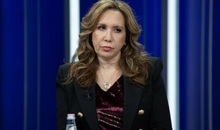
 Flash News
Flash News
PD lobbying, Celibashi clarifies: PD has no obligation to file documents
Edi Rama's anti-American campaign
SPAK launches investigation into meetings of former Road Chief, questions two police station chiefs
Suspected of killing ex-boyfriend in Voskopoja, court orders prison sentence for Kejsi Spahillari
Pedestrian dies after being hit by car while crossing the traffic light near the former "Eagle" Square
May 11 elections, OSCE/ODIHR report: Not all recommendations have been respected
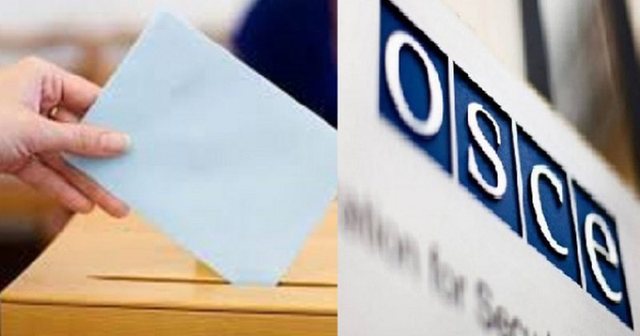
ODIHR has published its interim report on the parliamentary elections of 11 May 2025. The report emphasizes that the parliamentary elections of 11 May 2025 mark a key moment for Albania, not only due to significant changes in the electoral system and the introduction of out-of-country voting for the first time, but also due to the tense political context and ongoing challenges on the path towards the European Union.
The interim report of the ODIHR Election Observation Mission highlights progress, but also outstanding issues related to the credibility of the electoral process, gender representation, electoral campaigning, party financing and media freedom. The report covers the period 1 – 21 April 2025.
Excerpt from the report:
“ The 2025 parliamentary elections take place against the backdrop of changes to the electoral system and the introduction of external voting for the first time, which gives these elections a special importance for the country. They are considered a further test for the development of Albania’s democratic processes and institutions, especially in the context of EU accession negotiations. The political environment is characterized by a high degree of polarization and distrust between the two main parties.
Changes to the legal framework in 2024 and 2025 modified the electoral system and introduced out-of-country voting, however, a comprehensive review of the legal framework has not been undertaken. Under the new system, each electoral entity presents closed and preferential lists.
The Central Election Commission (CEC) is responsible for administering the process and has so far respected the legal deadlines, including preparations for the external voting that will be carried out by mail. The CEC has conducted information campaigns for citizens inside and outside the country, including minorities and people with disabilities.
About 3.7 million voters are registered for these elections, including about 246,000 voting from abroad. To ensure inclusion, the CEC extended the validity of expired identity documents.
There are 11 electoral entities in the race – 8 political parties and 3 coalitions – with a total of 2,046 candidates. The Electoral Code includes a gender quota, where one in three candidates on the lists must be of the underrepresented gender.
Women represent 38.47% of candidates, but remain underrepresented in the Assembly (36%). The female gender constitutes only 3 out of 12 members of the CEC. Gender stereotyping and discriminatory rhetoric continue to be major obstacles.
The election campaign, which officially began on April 11, has been muted, with harsh tones and personal attacks between leaders. The CEC has received complaints about violations of campaign rules and is monitoring the online activities of 50 public institutions.
The campaign is financed by public and private funds. There have been no major changes in the regulations on electoral financing since the last elections.
Freedom of expression is protected by law, but defamation remains criminalized and journalists face lawsuits. Media outlets face problems of independence due to concentrated ownership and dependence on public tenders.
The appeals process is led by the Appeals and Sanctions Commission (ASC), with final appeal to the Electoral College of the Tirana Court of Appeal. SPAK has established a task force for electoral crimes.
The Constitution guarantees rights for minorities and campaigning in their languages is permitted. The CEC has undertaken outreach initiatives to encourage the participation of underrepresented groups.
The Electoral Code provides for citizen and international observation. As of April 11, 26 national and 10 international organizations have been accredited. Albanian NGOs warn that lack of funding could limit election day observation.
Dokumenta bashkëngjitur
Latest news





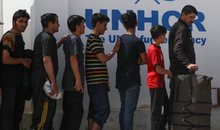


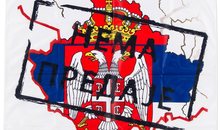
Belgrade University Professor Raises Alarm: Serbia Wants to Take Kosovo by Force
2025-04-29 17:41:25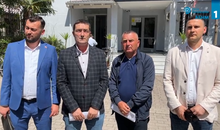

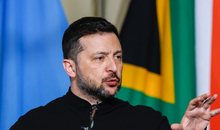
Kremlin rejects Zelenskyy's offer for 30-day ceasefire
2025-04-29 16:55:58
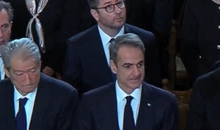
"Best wishes"/ Mitsotakis meets and congratulates Berisha at the EPP Congress
2025-04-29 16:38:02

Clashes at Tom Doshi's electoral office at 'Ali Demi', PSD reacts
2025-04-29 16:14:12


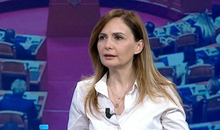
Lobbying in the US, Tabaku: Everything will be transparent and declared
2025-04-29 15:23:00
May 11 elections, OSCE/ODIHR report: Not all recommendations have been respected
2025-04-29 15:19:44

Fight at Tom Doshi's PSD office at 'Ali Demi', police find two bullets
2025-04-29 14:52:49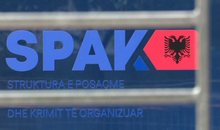

'Toyota Yaris', goes to trial at the GJKKO, lawyer Radovan Çela
2025-04-29 14:13:26
Albanian arrested in Italy for transporting 10 kg of cocaine
2025-04-29 13:58:56

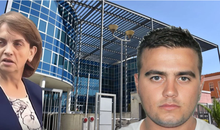

Before the ballot: A cold calculation in four directions
2025-04-29 13:20:41
EPP Congress, Berisha: I return to Spain, where I was last time
2025-04-29 13:10:07
Spahia: On May 11th we end discrimination against the north
2025-04-29 12:58:24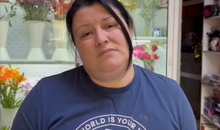
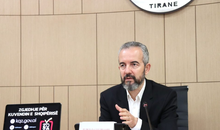
PD lobbying, Celibashi clarifies: PD has no obligation to file documents
2025-04-29 12:30:08
Three teenagers in Lezha were injured after a 17-year-old was punched
2025-04-29 12:25:09
Edi Rama's anti-American campaign
2025-04-29 12:17:22

Why didn't Rama dare answer these 12 questions yesterday at the QSU?
2025-04-29 11:59:45
3 qualities that make the difference for a 'strong mind'
2025-04-29 11:43:34

Xhaferri: Rama has forgotten the citizen and has invested only in corrupt PPPs!
2025-04-29 11:22:02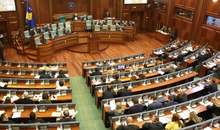
The constitution of the Kosovo Assembly fails for the eighth time
2025-04-29 11:11:02
Tabaku continues his campaign, meets with Reshat Arbana
2025-04-29 11:01:04

Attempted to violently rob three Italians, young man arrested in Durrës
2025-04-29 10:40:25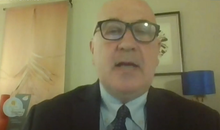

Journalist: 35 refugees in Gjadri camp have attempted suicide
2025-04-29 10:17:23
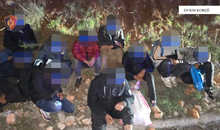


Rama: Don't mess with patronizers
2025-04-29 09:37:27
Are twins allergic to the same things?
2025-04-29 09:28:33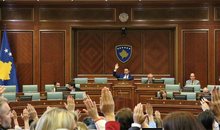
The Kosovo Assembly meets again today in a constitutive session
2025-04-29 09:20:47

Television media become an 'extension' of party propaganda during the campaign
2025-04-29 08:59:28

Albanians perceive economic inequality much higher than official indicators
2025-04-29 08:39:46
The city once breathed, today it coughs.
2025-04-29 08:31:21

Weather forecast/ How temperatures will vary throughout the day
2025-04-29 07:54:27
"Avoid impulsive purchases"/ Today's horoscope
2025-04-29 07:31:59
Morning Post/ In 2 lines: What mattered yesterday in Albania
2025-04-29 07:20:17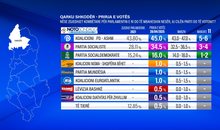
Poll/ DP ranks first in Shkodra
2025-04-28 22:55:39
Analyst: Edi Rama is an ordinary fraudster
2025-04-28 22:30:06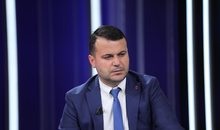
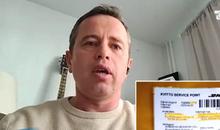
Immigrant in Sweden accuses CEC of violating the secrecy of his vote
2025-04-28 21:44:30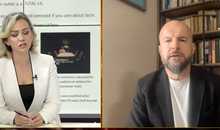

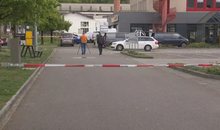
Bullets fired at car, Albanian injured in Switzerland
2025-04-28 21:02:07
Albanian caught with 2 million euros of cocaine in his car
2025-04-28 20:45:20

Why does Rama threaten citizens who complain about corruption?
2025-04-28 20:17:54

Gjekmarkaj meeting with residents in Tale 2: We win 5:2 in the Lezha region
2025-04-28 19:55:24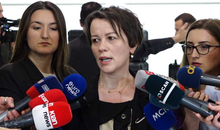
CEC tests PEI devices to be used on May 11
2025-04-28 19:36:24


"Enough is enough", Rama is distracted by young people during the meeting
2025-04-28 19:12:28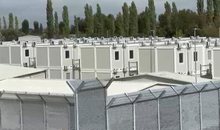
"La Stampa": 16 migrants have "disappeared" from the Gjadri camp
2025-04-28 18:55:34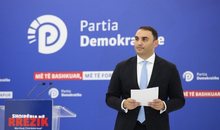


A person's eyes can tell if they have 'mental problems'
2025-04-28 18:05:09
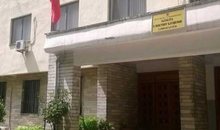

Cardiovascular diseases, 8% of patients at risk for cardiac arrest
2025-04-28 17:19:40
Xhaferri: The next Prime Minister from the DP will be for all citizens
2025-04-28 17:11:44

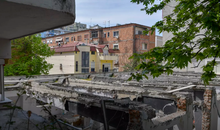

Children with developmental and speech delays due to "cellphone in hand"
2025-04-28 16:22:51
Power outages in Spain and Portugal, services 'paralyzed'
2025-04-28 16:14:38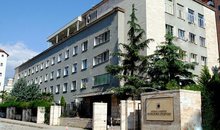

Richard Grenell reacts to the news reprinted by Politiko: It is false!
2025-04-28 15:52:47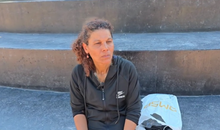

Foods with vitamin A, here's why they are vital for eye protection
2025-04-28 15:32:34

